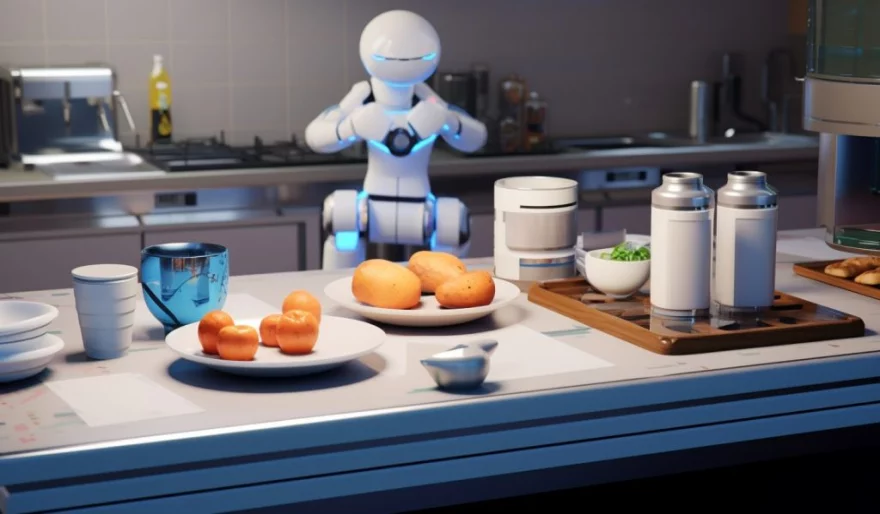Stay Ahead of the Curve
Latest AI news, expert analysis, bold opinions, and key trends — delivered to your inbox.
TRI is teaching robots to make breakfast using generative AI and a sense of touch
6 min read Toyota's Research Institute is using generative AI and a sense of touch to teach robots to make breakfast. They show the robots tasks, and the AI model learns by observation, making it easier for them to perform various skills. September 20, 2023 06:36
The Toyota Research Institute (TRI) is teaching robots to make breakfast using generative AI and a sense of touch. This research has the potential to revolutionize the way we interact with robots, making it possible for them to perform complex tasks with minimal instruction.
TRI's approach is to show the robots tasks, and then have the AI model learn by observation. This makes it easier for the robots to learn and generalize new skills. The goal is to create "Large Behavior Models" for robots, which would allow them to learn and perform new skills independently.
TRI has already trained robots to perform over 60 different tasks, including making coffee, pouring cereal, and scrambling eggs. They aim to have robots trained to perform 1,000 tasks by 2024.
Other companies, such as Google and Tesla, are also exploring similar research. However, training AI-powered robots is a challenging and labor-intensive process.
Despite the challenges, TRI believes that AI-trained robots have the potential to revolutionize the way we live and work. In the future, AI-trained robots could be used to perform a wide range of tasks, from cooking and cleaning to assisting with manufacturing and healthcare.
Here are some of the potential benefits of AI-trained robots:
- Increased productivity: AI-trained robots could automate many tasks that are currently performed by humans, freeing up our time and energy for other things.
- Improved safety: AI-trained robots could be used to perform tasks that are dangerous or difficult for humans to do, such as working in hazardous environments or exploring remote locations.
- Enhanced quality of life: AI-trained robots could be used to provide companionship, assistance, and care to people in need.
Overall, TRI's research on AI-trained robots is a promising step towards a future where robots can help us to live better lives.
Implications for the future
The development of AI-trained robots has the potential to revolutionize the way we live and work. In the future, AI-trained robots could be used to perform a wide range of tasks, from cooking and cleaning to assisting with manufacturing and healthcare.
AI-trained robots could also have a significant impact on the economy. By automating many tasks that are currently performed by humans, AI-trained robots could lead to increased productivity and economic growth. However, it is also important to consider the potential negative impacts of AI-trained robots, such as job displacement and increased inequality.
It is important to develop AI-trained robots in a responsible and ethical way. We need to ensure that AI-trained robots are used to benefit society as a whole, and that they do not harm or exploit people.



















 AI Agents
AI Agents